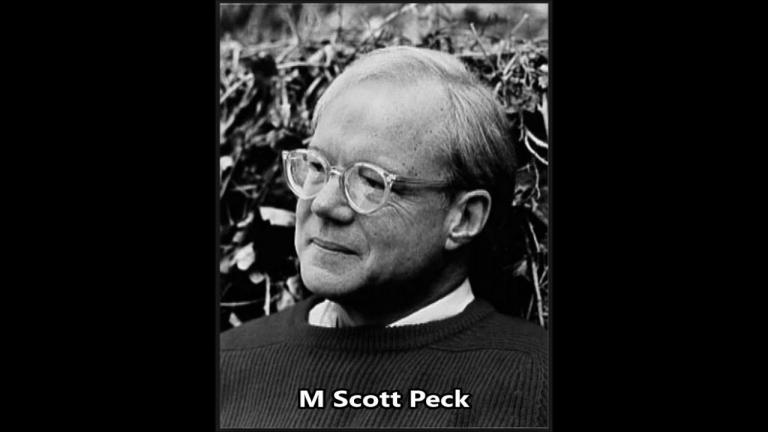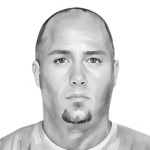 My friend Barbara Buzzard–wife of my friend Sir Anthony Buzzard, professor emeritus at Atlanta Bible College–has written an interesting article, “The Seeds of Deception,” in this month’s newsletter “Focus on the Kingdom,” of which Anthony is the editor. She writes mostly about Dr. M. Scott Peck’s second book, People of the Lie (1983). (I’ll dispense with the lengthy subtitles of his books to keep this short.) Barbara obviously decided, and rightly so, that talk about this book is appropriate for our time here in America due to our current politics.
My friend Barbara Buzzard–wife of my friend Sir Anthony Buzzard, professor emeritus at Atlanta Bible College–has written an interesting article, “The Seeds of Deception,” in this month’s newsletter “Focus on the Kingdom,” of which Anthony is the editor. She writes mostly about Dr. M. Scott Peck’s second book, People of the Lie (1983). (I’ll dispense with the lengthy subtitles of his books to keep this short.) Barbara obviously decided, and rightly so, that talk about this book is appropriate for our time here in America due to our current politics.
Barbara, who often writes good book reviews, says in this article:
“Dr. Peck aligns himself with Scripture [Bible] in acknowledging that ‘pride goes before a fall.’ He defines pride as a feature which ‘unrealistically denies our inherent sinfulness and imperfections’ [People of the Lie, p. 80], and he affirms how very dangerous this is. Peck emphasizes that to ‘people of the lie’ self-deception is an integral part of their behavior; so much so that they are willing to sacrifice and harm and even destroy others in order to preserve their one self-image. [Emphasis herein is hers.] He names this trait malignant narcissism and finds it to be a root of evil and utterly perverse.
“One characteristic of the people Peck describes is a failure to ever put themselves on trial. [Quoting Peck] ‘Unpleasant though it may be, the sense of personal sin is precisely that which keeps our sin from getting out of hand. It is a very great blessing because it is our one and only effective safeguard against our own proclivity for evil’ [People of the Lie, p. 72]. Lies are devastating, and no less devastating when they are lies told to ourselves. It is damaging to ignore or otherwise escape one’s conscience. I am reminded of lepers and the fact that they cannot feel the pain which acts as a signal to escape, i.e., burning one’s fingers by touching a hot stove. The nerve endings which cause one to immediately retreat because of pain are, in fact, a blessing, saving one from further harm. So too, an active and functional conscience is our friend, a safeguard, preventing disaster. And should we fail, God has allowed us to be blessed by guilt.
“Parenthetically let me add that Peck did not begin his practice in psychology with a view of Satan as an active being, but he became a believer in the power and personality of this being as a result of what he saw and experienced. The following is what he has come to believe: ‘Pervading this personality (Satan) is an active presence of hate. Satan wants to destroy us. It is important that we understand this. . . . To think otherwise is to be misled. Indeed . . . perhaps Satan’s best deception is its (sic) general success in concealing its (sic) own reality from the human mind’ [People of the Lie, p. 208].”
During the 1980s, I became sort of a fan of Dr. Peck (1936-2005) when I read his first book, The Road Less Traveled (1978). This little known psychiatrist had to promote this book before it really started selling. Years later, it was on The New York Times bestseller list for 13 years. It has been translated into 20 languages and has sold over 10 million copies. Peck afterwards wrote Further Along the Road Less Traveled (1993) and The Road Less Traveled and Beyond (1998). He wrote 15 books.
The main thing I always remember about The Road Less Traveled is that it begins with this profound statement: “Life is difficult.” Peck knew this from experience. Much of his life was anything but exemplary. He was an adulterer, a chain smoker, and perhaps an alcoholic. (He later admitted an estrangement from two of his three children.)
Peck became a Zen Buddhist, hanging out in Southeast Asia for a while. He later testified that Buddhism was deficient since it had no solution for the sin problem. The title of Peck’s first book, The Road Less Traveled, means that living a life of self-discipline and responsibility is the only way to live life successfully. Words of wisdom. But that wasn’t all of Peck’s message about life.
Scott Peck’s parents were Quakers even though his father was a half-Jewish, New York lawyer. Scott surprisingly joined the U.S. Army during the Vietnam War even though he was opposed to it. He became the assistant chief of psychiatry in the U.S. surgeon general’s office in Washington, D.C. Peck graduated from Harvard University and Case-Western Reserve University to begin a practice in psychiatry in Connecticut.
In 1984, Peck co-founded the Foundation for Community Encouragement, a nonprofit, educational organization “to teach the principles of community to individuals and organizations.” That is a concept I’ve believed in for a long time. It can be quite different from anything associated with church. Plus, community can provide a therapy that professional psychologists and psychiatrists cannot provide. That’s why AA as been successful.
Dr. Peck became a Christian in his mid-forties and died at age 69. His last book, published right before his death, in 2005, is entitled Glimpses of the Devil. I read some of this book. It is about Christian exorcism. It is somewhat of a shock to read a book written by an esteemed psychiatrist, who had celebrated publishing credentials, who had converted from Buddhism to Christianity in mid-life, who, at the turn of this century during its increasing post-modernity, advocated strongly for the existence of Satan and evil spirits, just as we read in the New Testament gospels written nearly 2,000 years ago.
That’s right–Dr. Peck believed Jesus really did cast demons–actual personal beings–out of people, demons who sometimes spoke in strange voices that were distinctly different from the voice of the demonized victims. I think I recall correctly that Peck said in that book that he witnessed people who had had such exorcism experiences who then went on and led better lives.
Dr. Scott Peck provides some words of wisdom in his writings about how to live this life, which can be difficult.
















